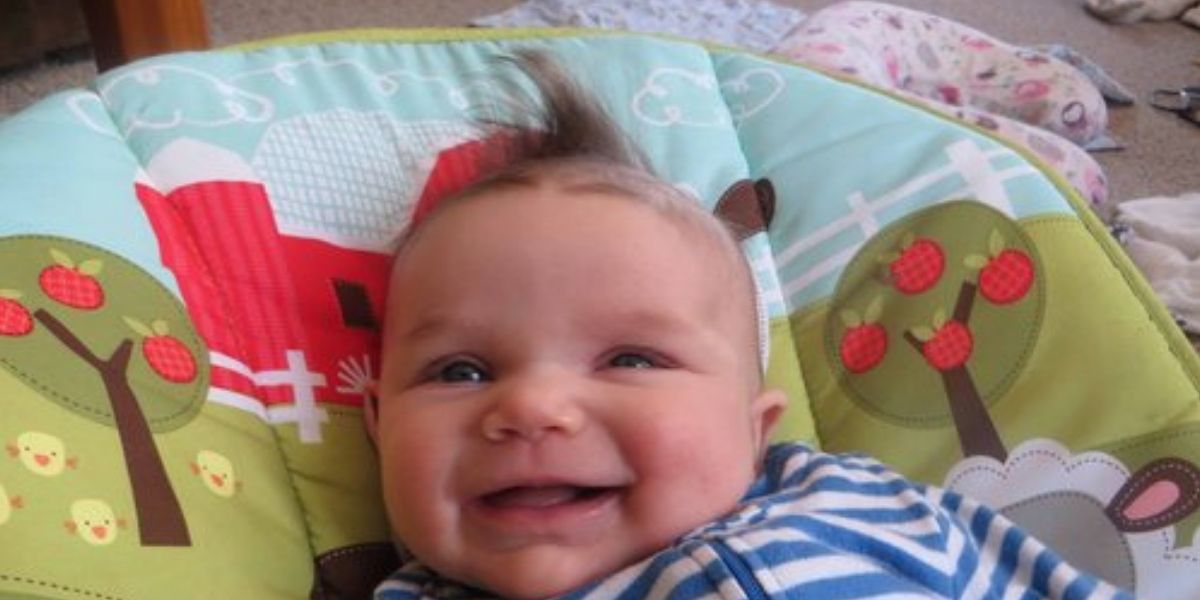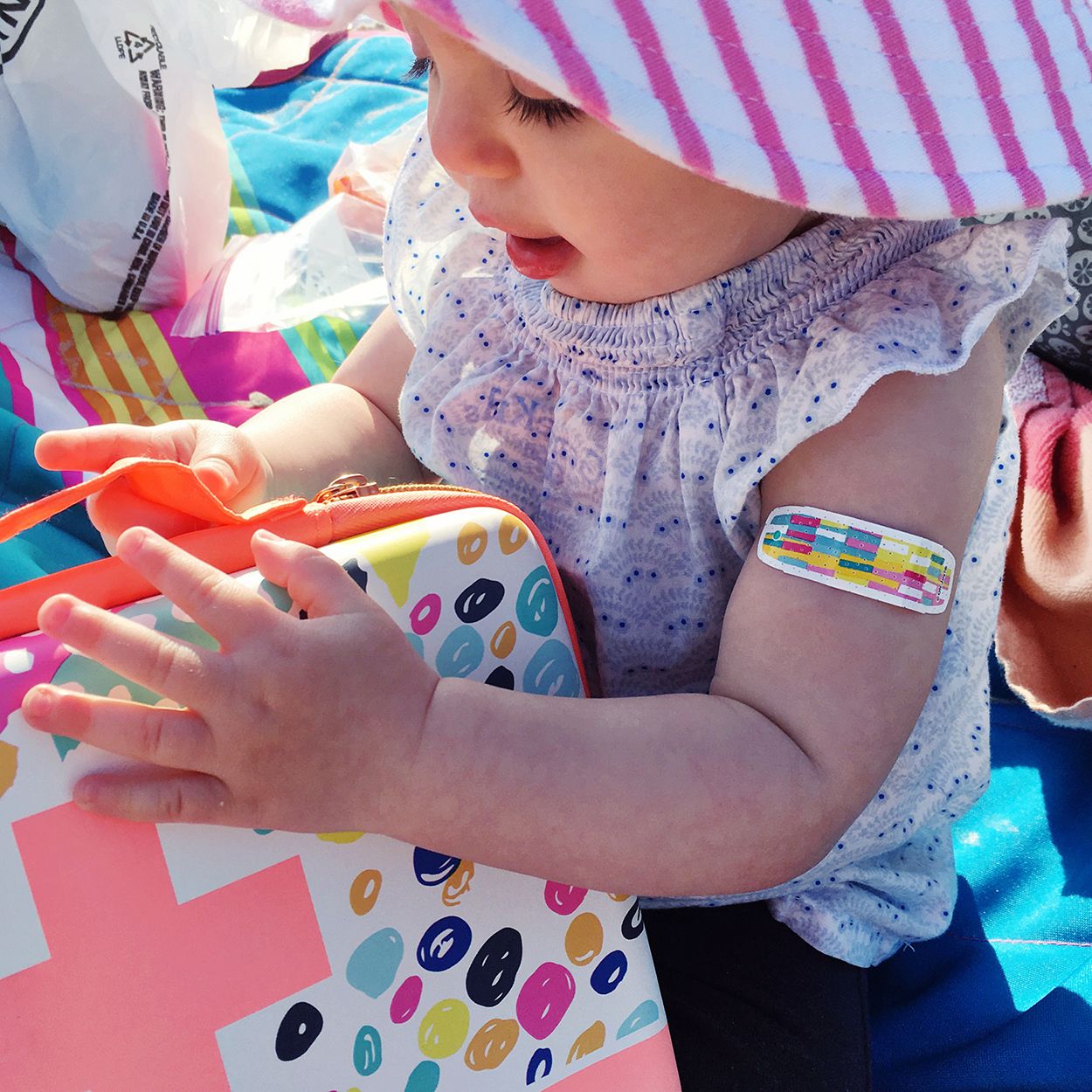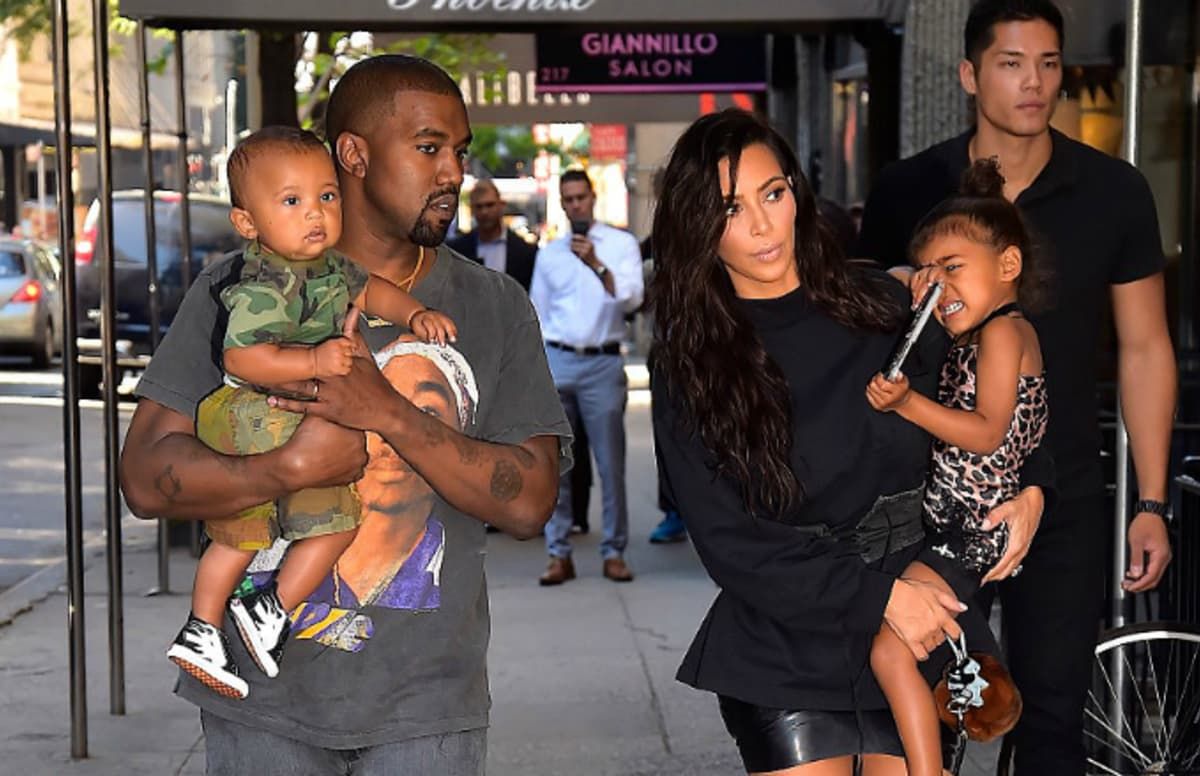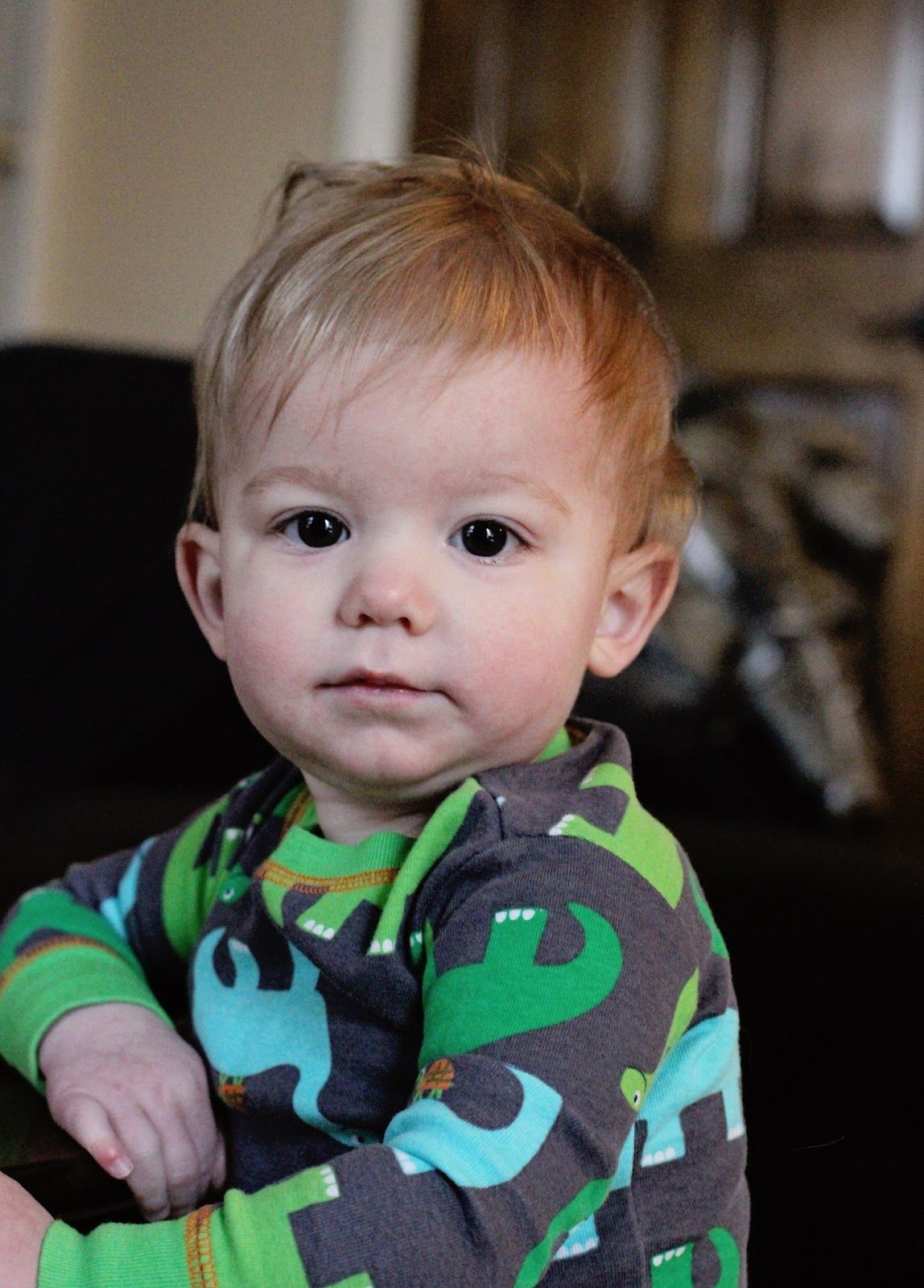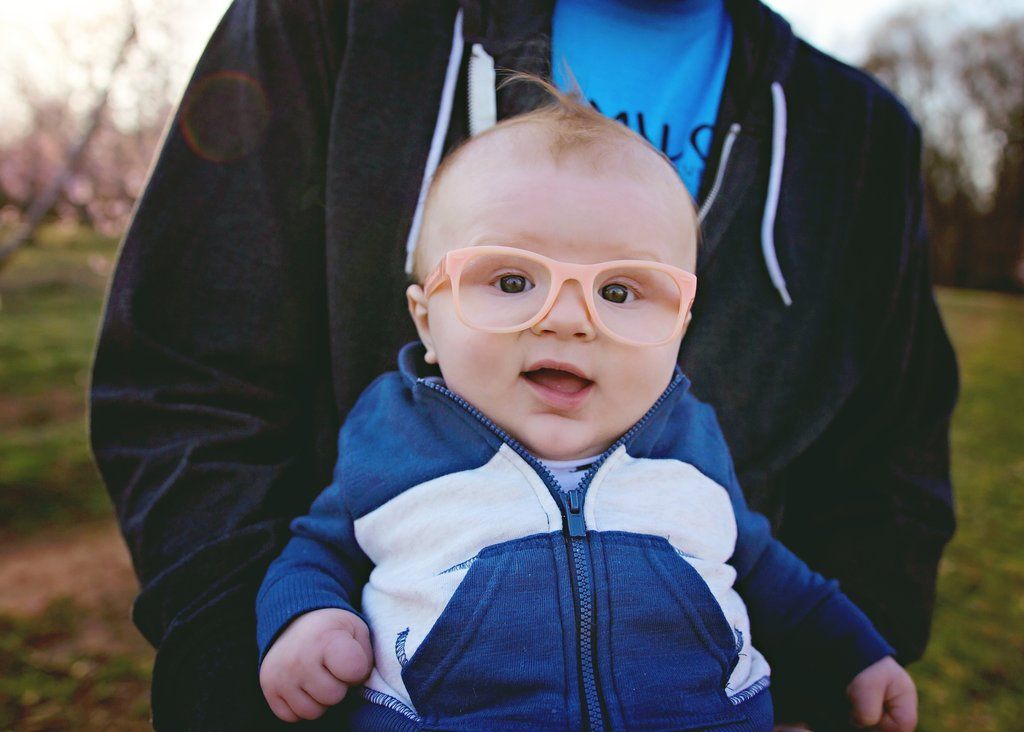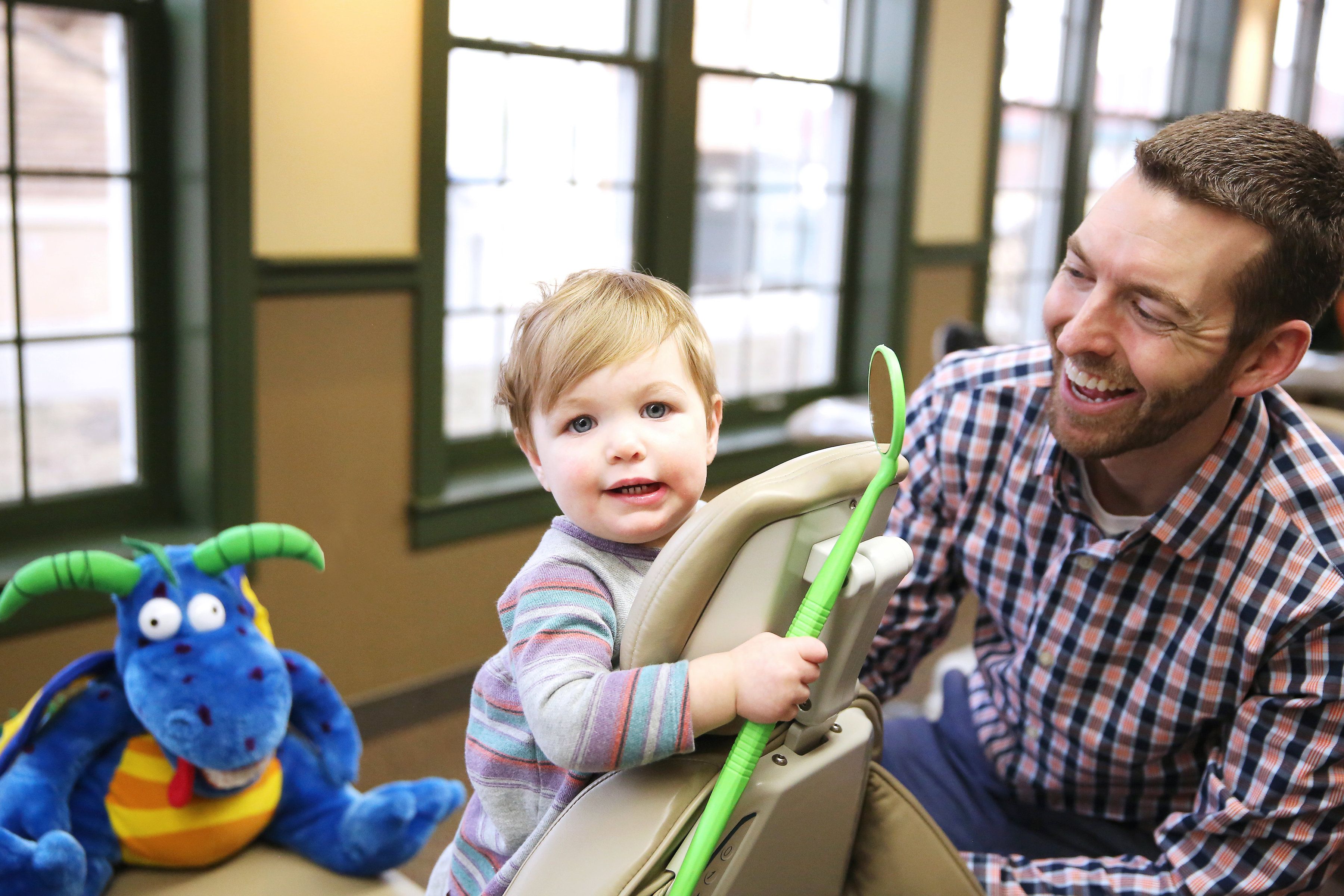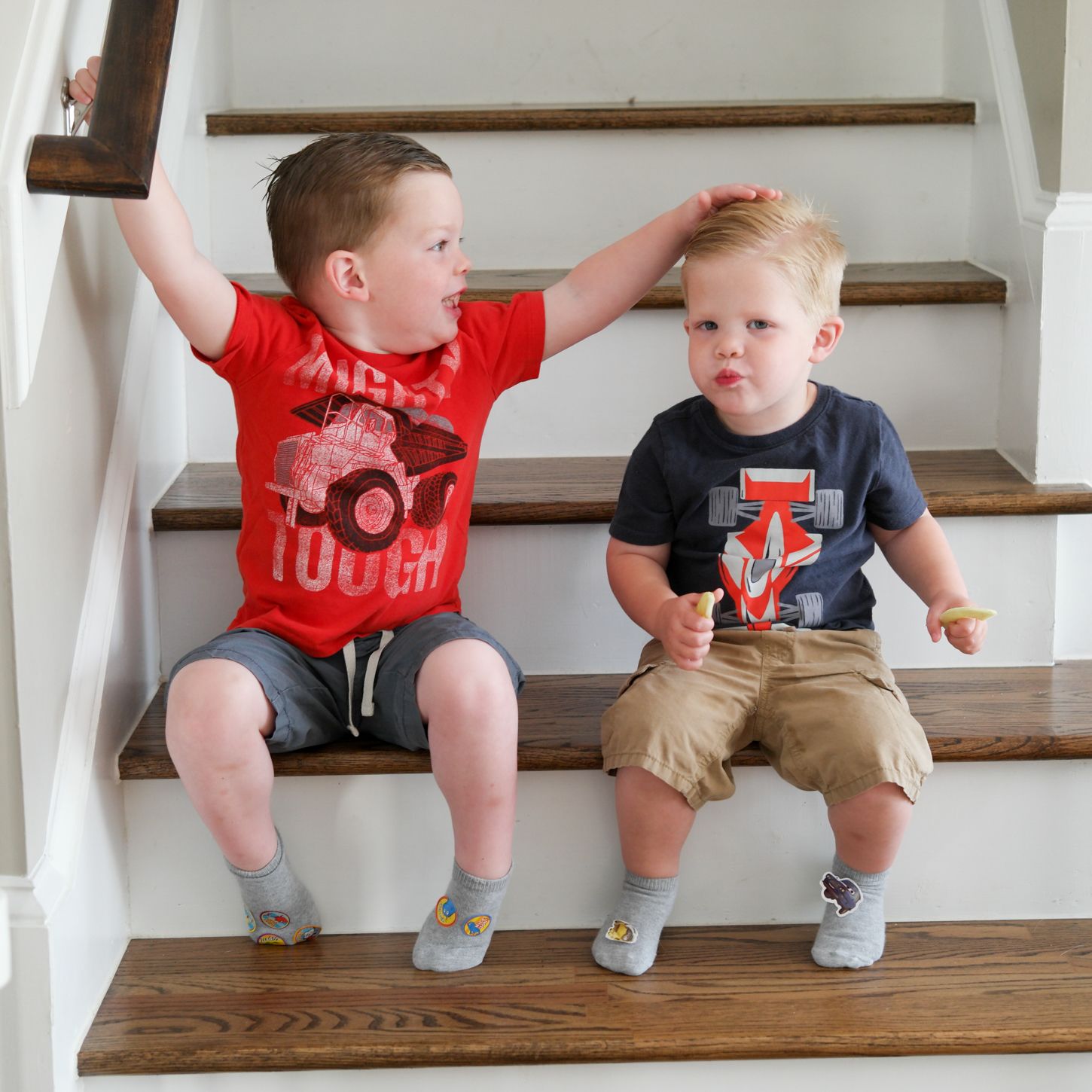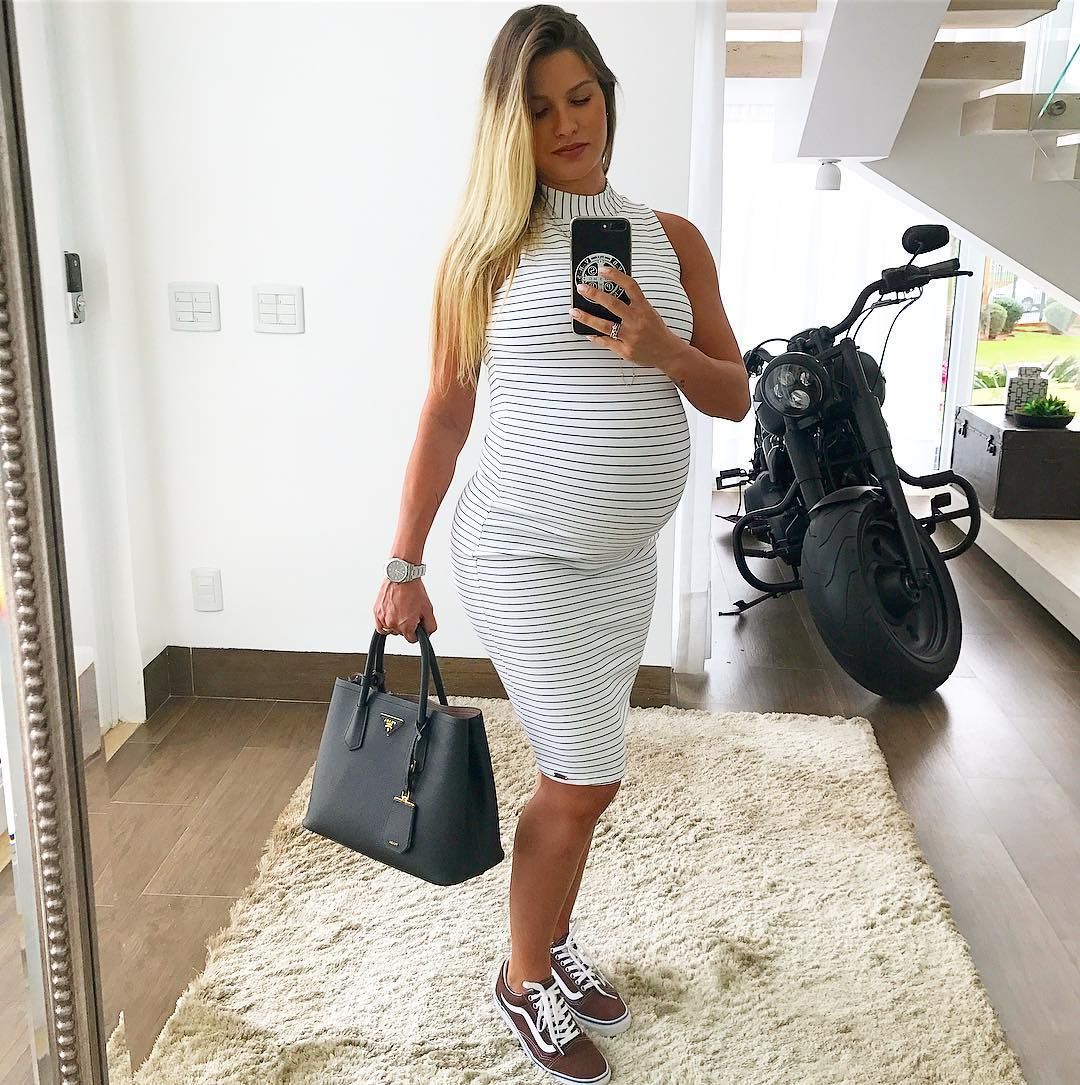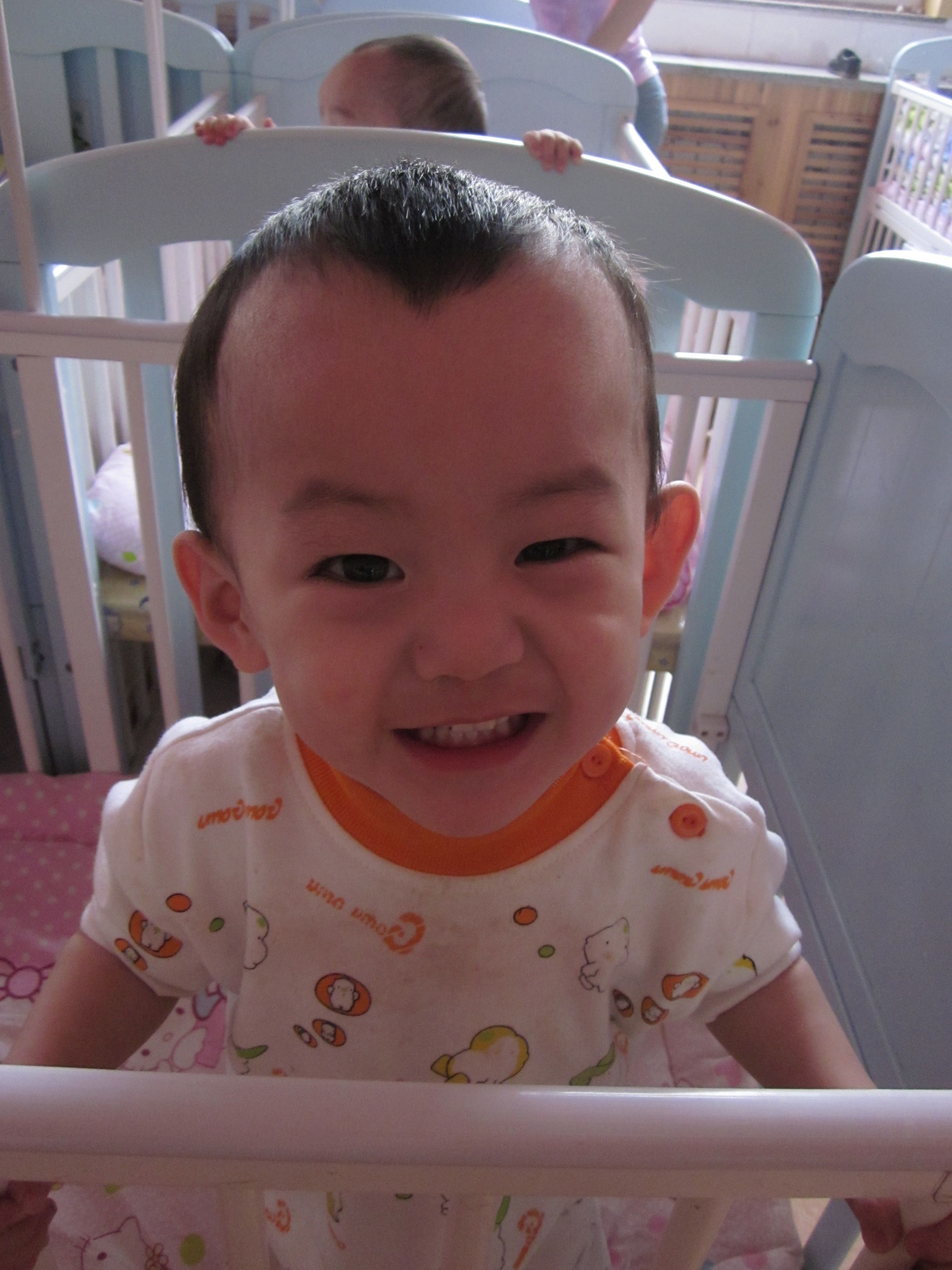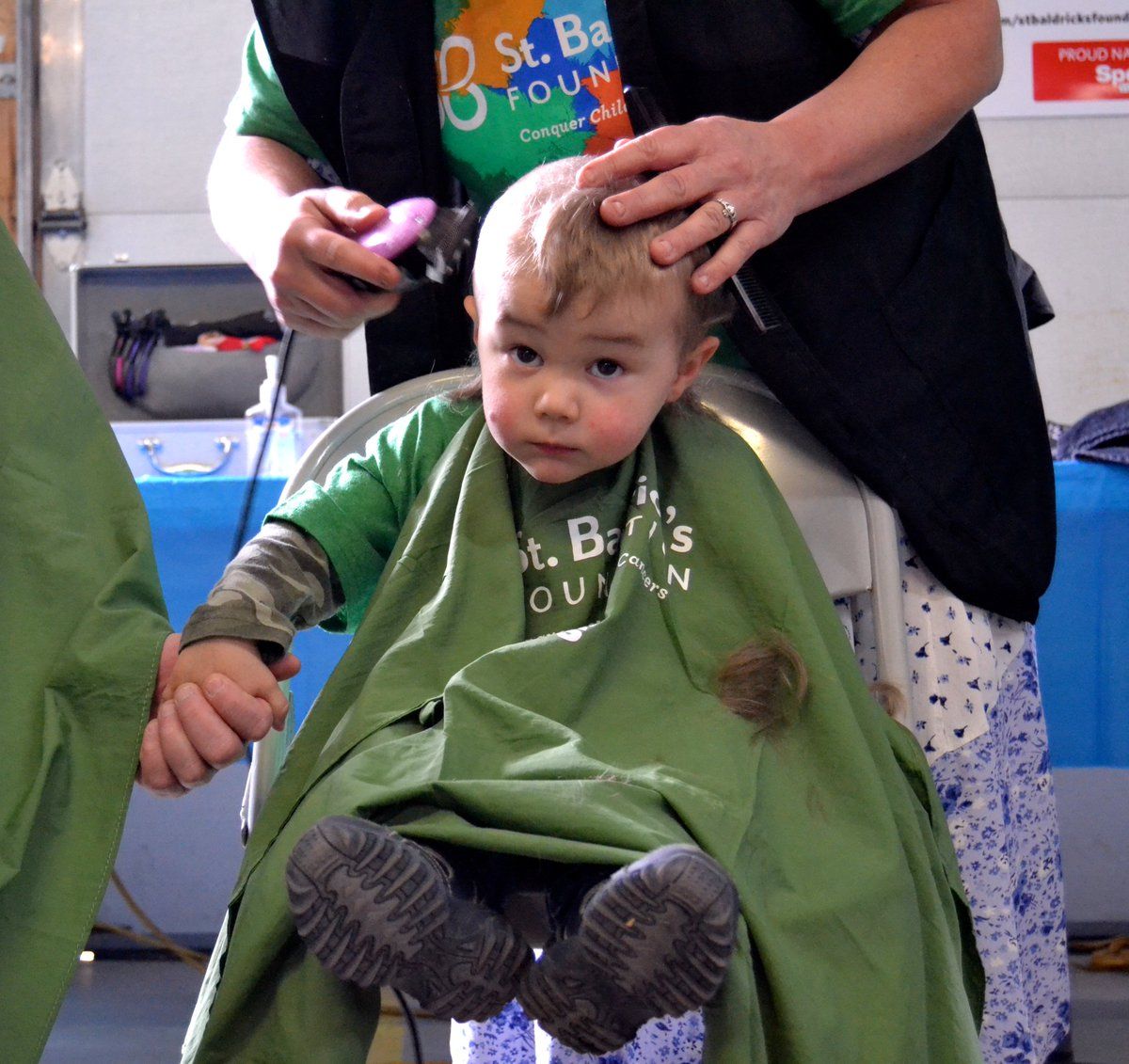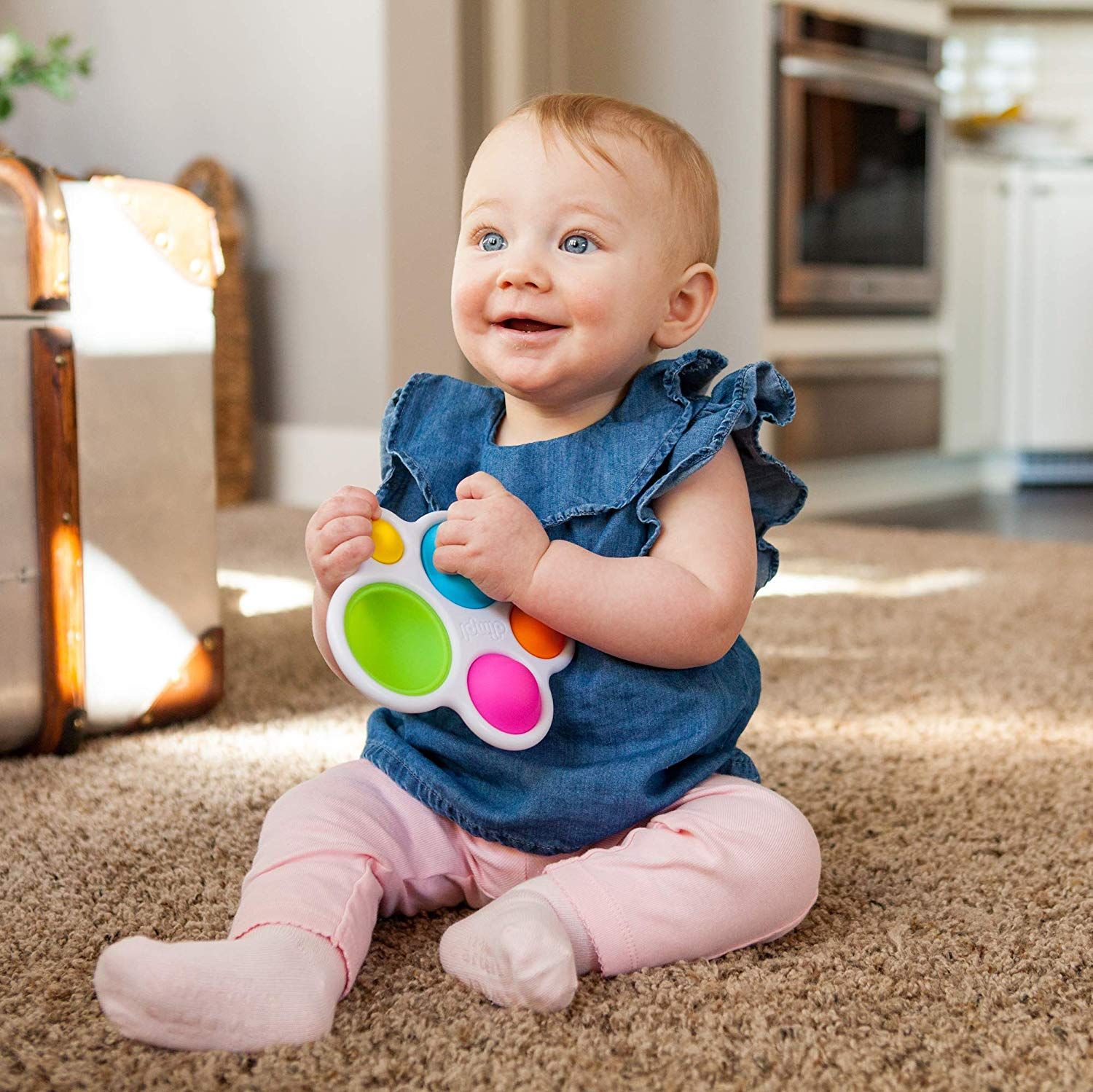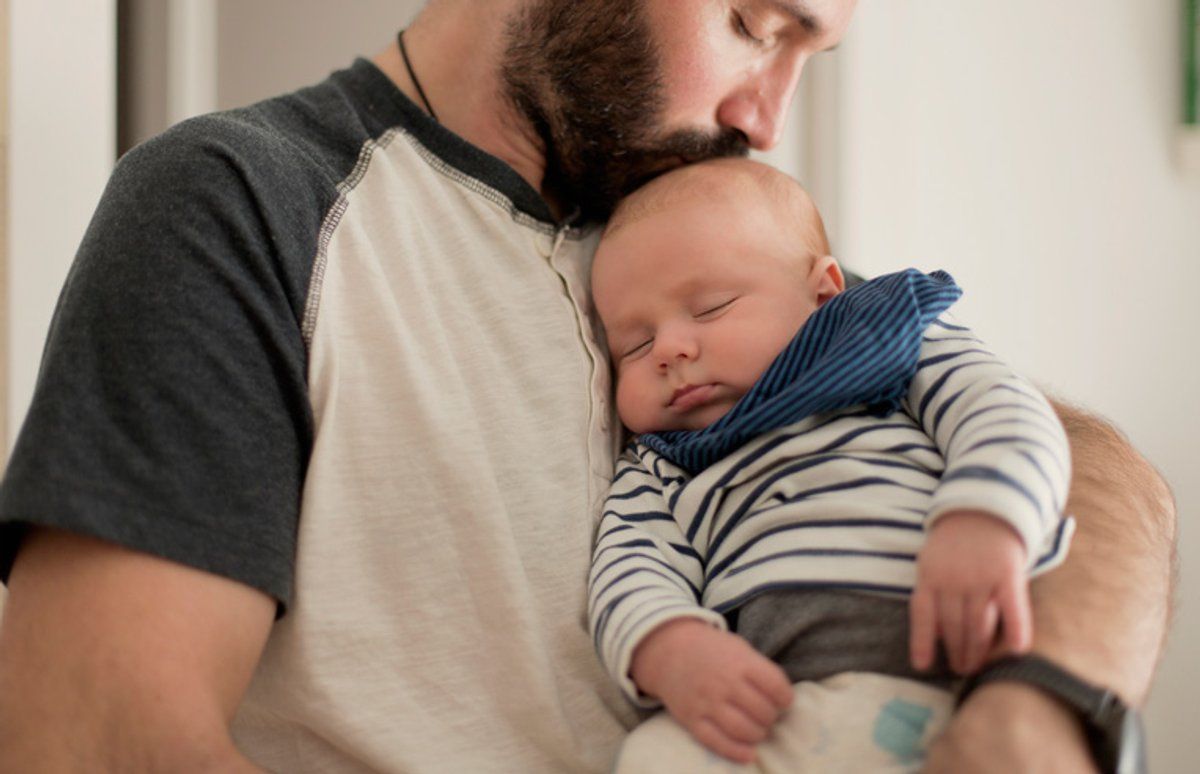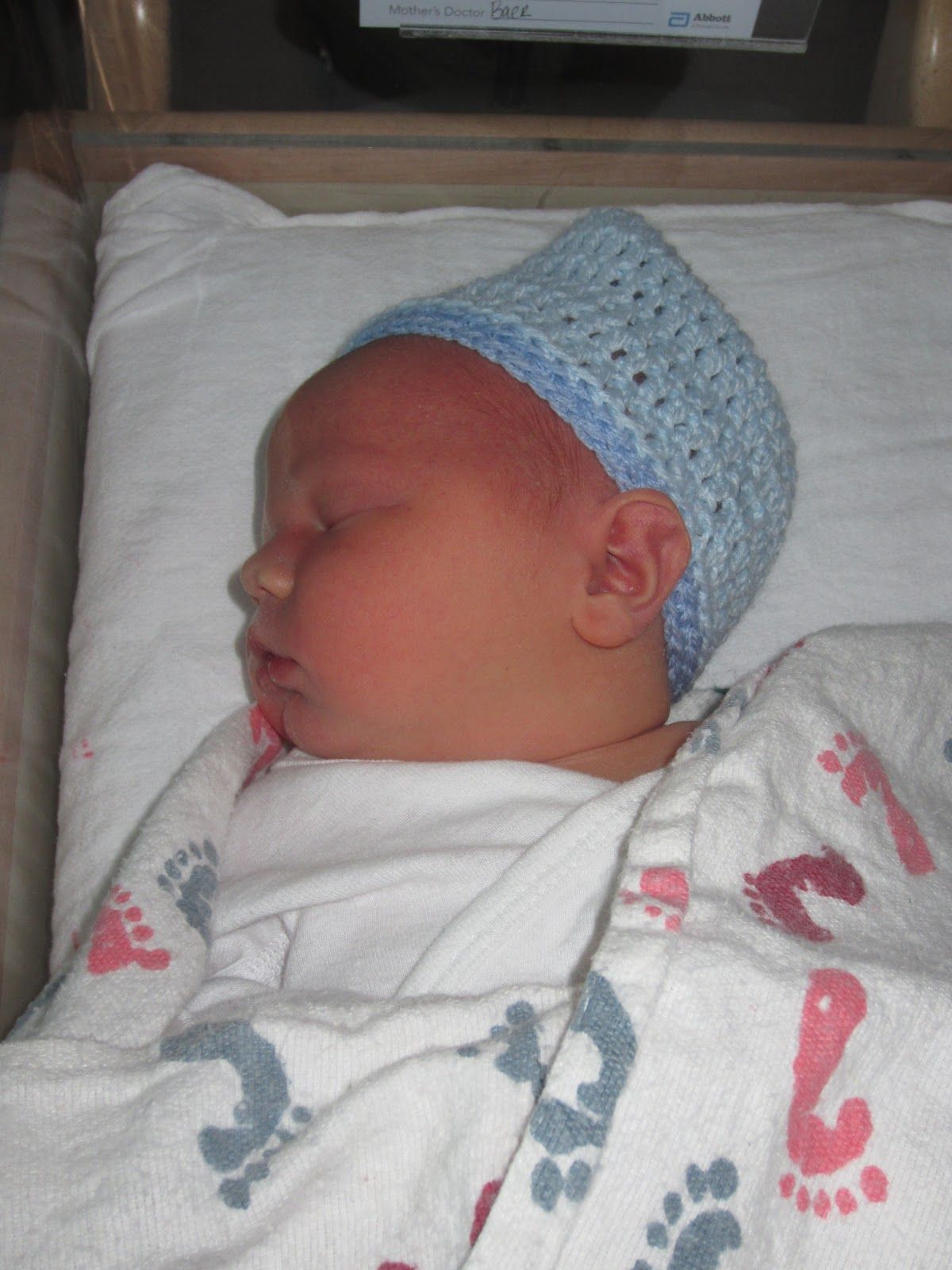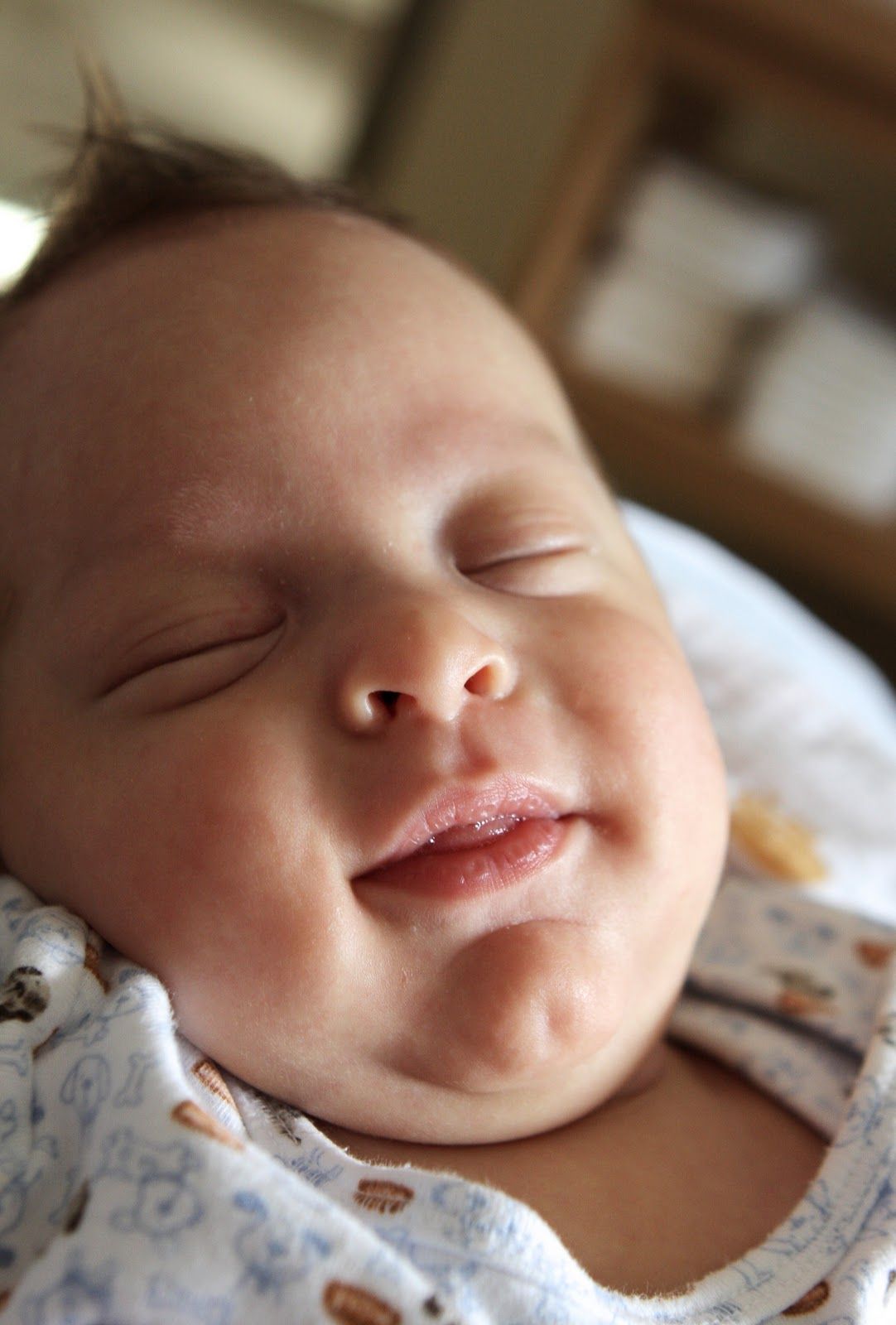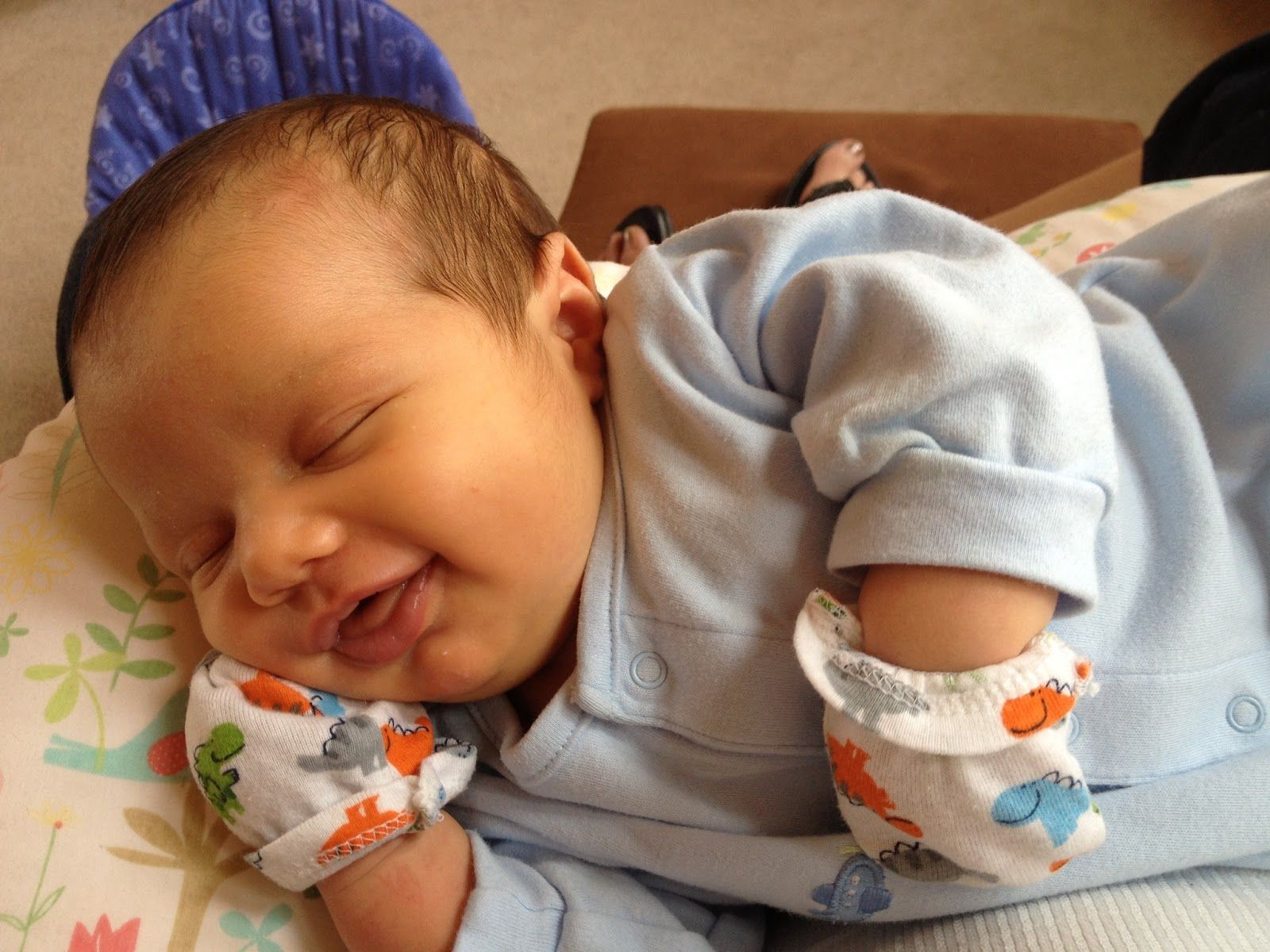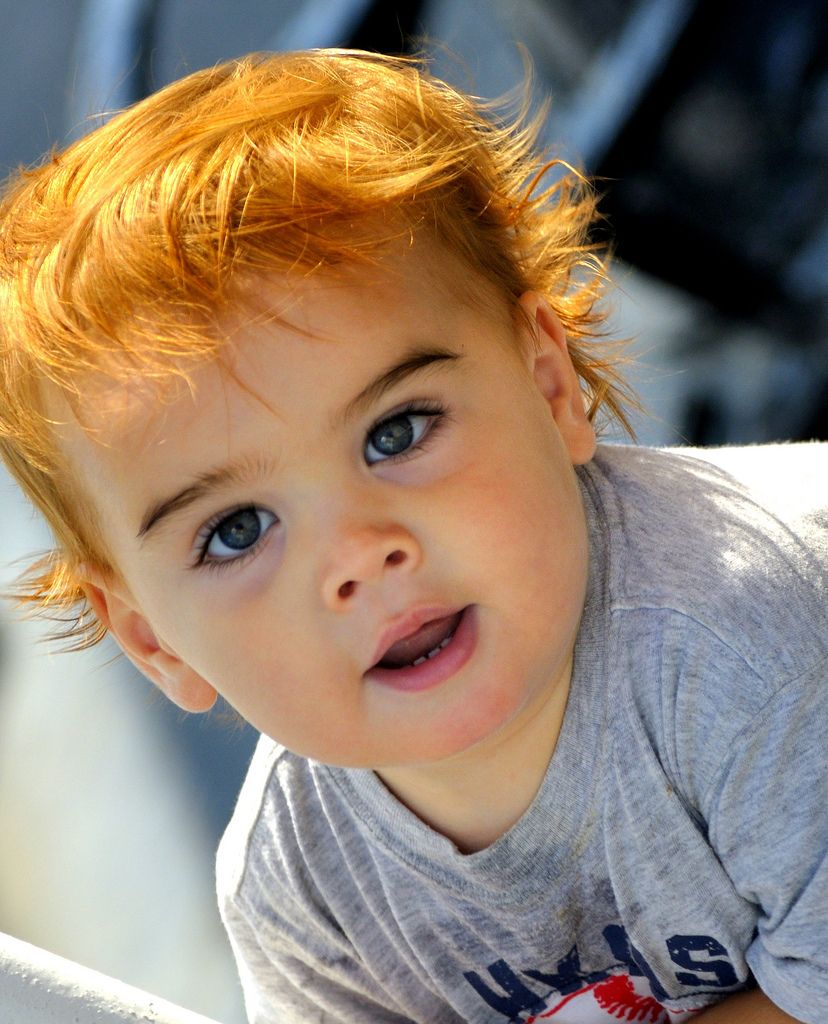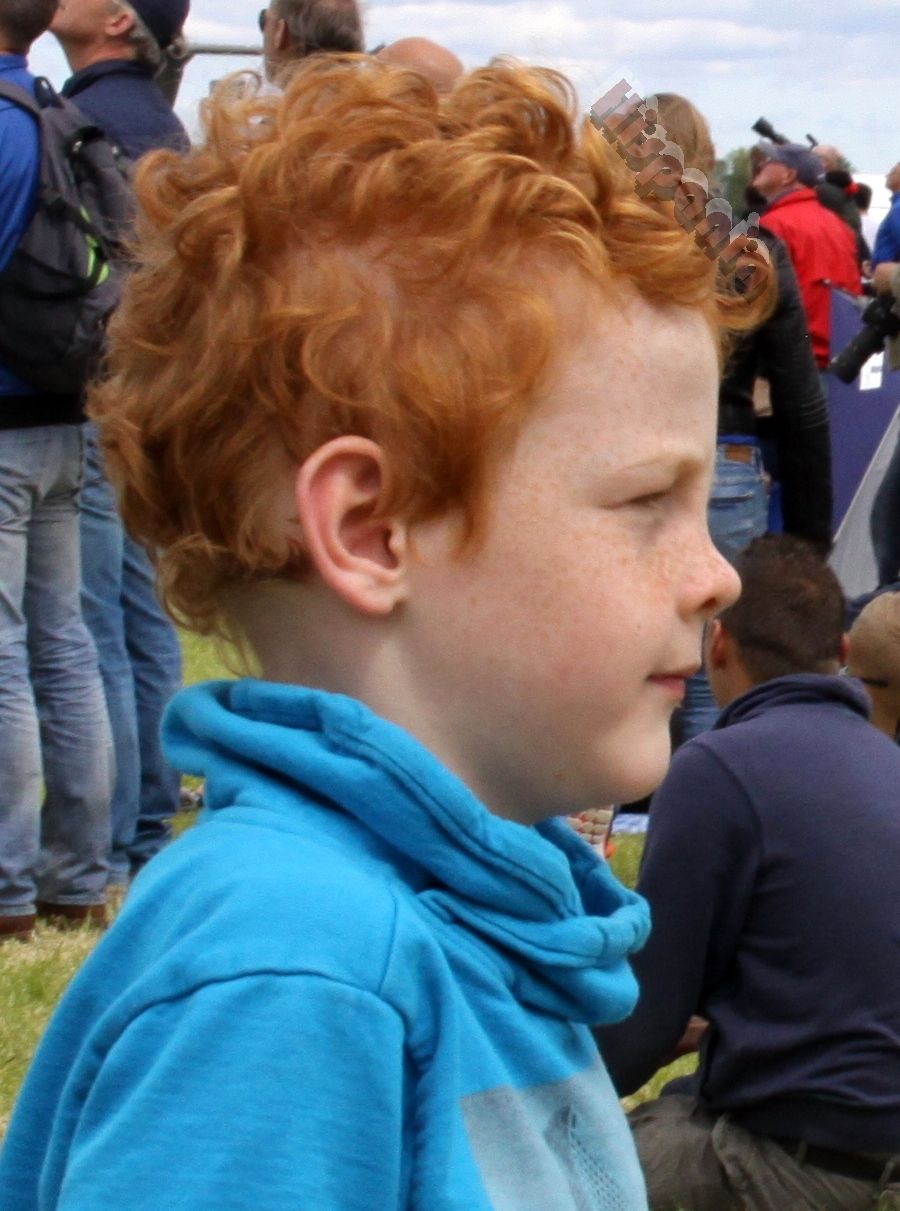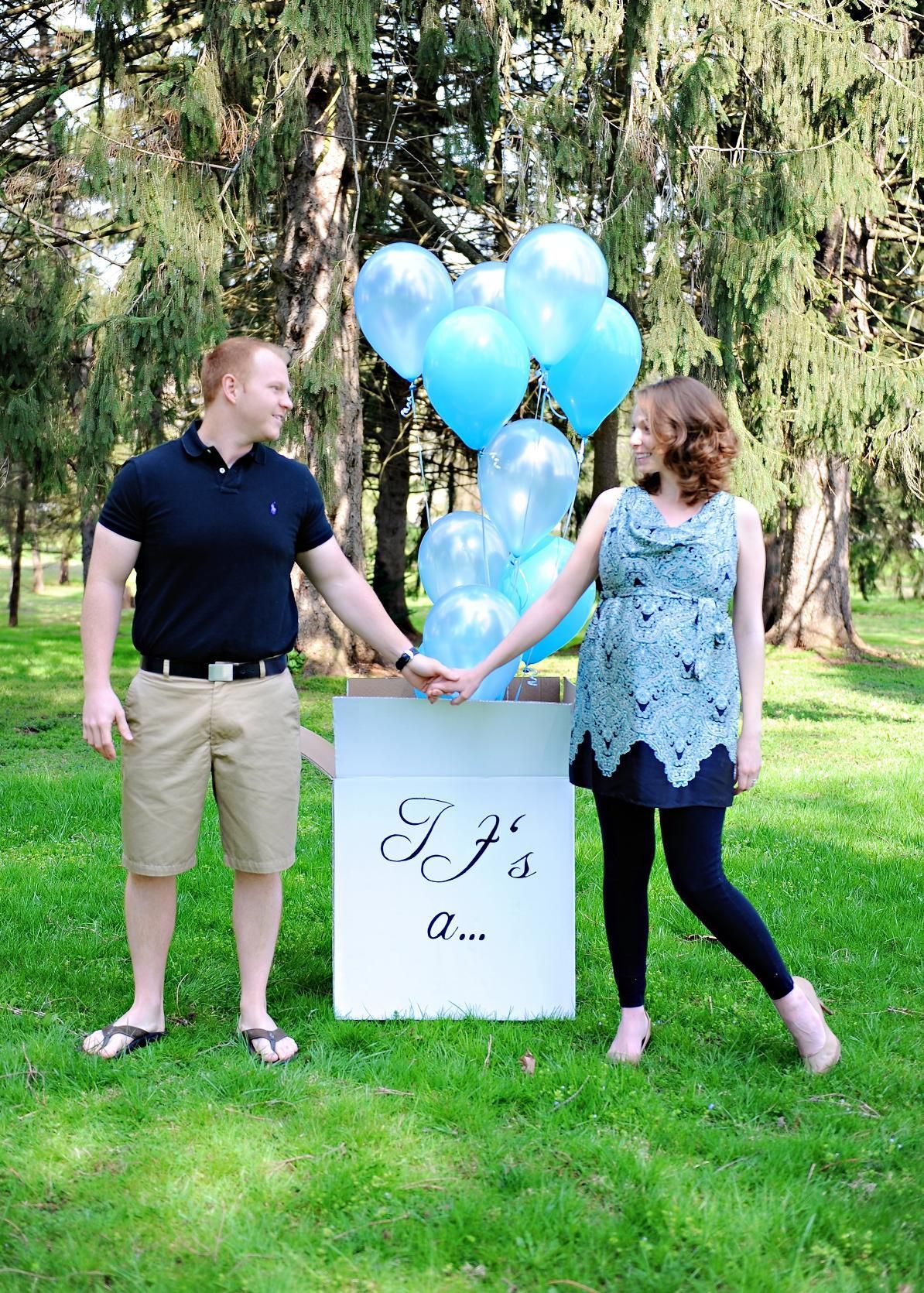How many millennials grew up entering their crush's photos alongside their own into online generators to try and predict what their potential future offspring would look like? The thing is, those goofy teens weren’t the only ones who were curious about what their DNA (and their crush's DNA) would determine when it came time to having babies.
Today, though, there’s plenty of research out there to both predict and explain what traits a baby will have and why, and it all has to do with their parents’ genetics. So many traits run in families, can be passed down over generations, or even skip generations. Like the propensity for a couple to have twins, so many things are already coded into a couple’s DNA before they even consider having a baby.
And when it turns out that the baby is a particular gender, there are even more questions. Will he have his dad’s nose? Will he have mom’s long toes? What about grandpa’s hairline, or grandma’s distinctive smile? Of course, there’s no way to know for sure until the baby is born, or maybe even until he grows up a little. But there are plenty of traits that science can explain, whether they came from mom or dad, in a little boy. Here are 10 traits little gents get from moms, and 10 they get from dads.
20 Thanks, Mom: Clotting Challenges
There are a variety of conditions that can affect a new baby, even if neither the mom or dad have said condition. But one that’s more common than most others is that of hemophilia, which is a condition where a baby’s body lacks sufficient clotting factors. Both hemophilia types A and B affect clotting abilities, per Children’s Hospital of Philadelphia, but most parents don’t notice their babies have an issue until minor owies turn major.
And when it happens? Baby boys have Mom to thank for passing on the genes that create this condition. It’s not the most ideal thing to inherit from a parent, but it is manageable.
19 Thanks, Dad: Overall Looks
Both parents contribute genetic material when a baby is conceived, but that doesn’t mean that their genes are equally expressed when it comes to the baby’s looks, behavior, temperament, or any other traits!
In fact, dad's contributions to their baby boy's genes make up sixty percent of the kiddo’s looks.
Mom’s contributions only influence the other forty percent, which explains a lot in terms of baby boys looking like identical, miniature copies of their daddies! The thing is, it’s tough to predict which traits will emerge thanks to which parent, so you could have a kiddo who has mom’s eyes, nose, and ears, but traits from dad that are less noticeable like toes!
18 Thanks, Mom: ADHD
According to Healthyway, mom's contributions in the genetic pool are the pieces that dictate whether her son is likely to have ADHD or not.
And while it’s not guaranteed that a mom who has any type of attention or other disorder will pass it to her little guy, it’s more likely that if he does have the condition, it came from mom’s side of the family.
That’s not to say that every behavioral problem is mom’s fault, but it’s just more common for the expressed genes with ADHD to tie into what mom added to the mix.
17 Thanks, Dad: Dark Eye Color
While eye color is one of those traits that’s fairly unpredictable, there are a few genetic impossibilities when it comes to eye color. But there are also unexpected traits that emerge that parents might worry a bit about.
For example, you can have a baby with blue eyes born to parents with brown (or green) eyes, but it’s less likely to occur than a brown-eyed baby is to brown-eyed parents.
And in general, dads with dark eye colors tend to supersede mom’s gene contributions, Healthyway notes, resulting in babies with matching dark eye colors. Then again, exceptions do occur, so start taking bets when baby is still in the womb!
16 Thanks, Mom: Color Blindness
While “color blindness” is the most commonly used term, “color vision deficiency” is technically more correct. After all, color blindness doesn’t truly mean the child is blind—it just means there are some colors he can’t see as well as others, if at all.
And while color blindness is an inherited trait, it more commonly affects boys rather than girls.
For example, red/green color blindness passes from moms to sons on a specific chromosome, and a mom with the gene doesn’t have to be color blind herself in order to give it to her son. Because the color-blindness gene is on the X chromosome, girls (XX) have to have the gene from both parents for the condition to happen, while boys (XY) only need one.
15 Thanks, Dad: Crooked Teeth
With most babies, it’s tough to tell whether their teeth will take after mom or dad while they’re still infants. You might notice in later years, however, that your son is more likely to get cavities than you were, or maybe his teeth are particularly crooked. Maybe he even has a trademark gap in between his front teeth the same way his dad used to.
In most cases, dad is to blame for the kiddo’s genetically disadvantaged teeth, Healthyway suggests. It’s another one of those complex formulas that result in kids inheriting their dad's least desirable traits instead of mom’s comparatively ideal pearly whites.
14 Thanks, Mom: Stylin’ Hair
From the moment parents find out they’re expecting, they start talking about who the baby will take after, whether they’ll be born with tons of hair or a cue-ball bald head. But there are some hints about whose hair the baby will end up with, at least, from the moment you find out you’re expecting a boy. While most guys worry they’ll inherit dad's bald heads, it’s actually mom’s genes that influence hair. In essence, a boy will inherit his mother’s hair genes—thanks to that same pesky X chromosome—so he’ll get his maternal grandfather’s hair instead of his dad’s.
13 Thanks, Dad: Impressive Height
There are a number of formulas out there to predict how tall your little boy (or girl) will be in adulthood, but according to Healthway, the most accurate measure of how tall your tot will be is to look at his dad.
Taller dads tend to produce taller sons, the site notes, although mom’s genetics come into play, too. After all, a mom who is shorter than average will influence her son’s genes even if dad is over six feet. In general, however, the taller dad is, the taller his son will be—a potential positive for boys who are hoping to play pro basketball one day!
12 Thanks Mom: Growth Starts In The Womb
Although dad’s towering height is one influence on a baby boy’s future height, his mom can also impact his early growth in ways that affect his future.
Because growth starts in the womb, a little boy could be smaller than his dad just because of the mom’s biology. Mom’s preexisting conditions—things like diabetes or other health challenges—can also influence the baby’s in utero growth. Plus, mom’s way of eating is something to consider, too, when it comes to growing a healthy (and tall) baby. If his mom is particularly short in stature, though, boys’ future height may be understandably unpredictable!
11 Thanks Dad: Widow’s Peak
While boys have their mothers (and maternal grandfathers) to thank for their stylin’ hair, there’s one trait that can be attributed to dad. And that is the “widow’s peak”—the little boy’s hairline.
Some parents notice from early in life that their baby boy has the same hairline as Dad, something that most guys are often annoyed with since they think it signifies hair loss.
But a widow’s peak can just be the way a guy’s hair grows, and it’s not necessarily an indicator of hair loss—especially in a baby! But isn’t it the cutest trait a tot can have? It makes them look like tiny little men!
10 Thanks Mom: Not-So-Simple Tricks
Another trait that is said to come from dads is their son's ability to roll their tongues.
Of course, the way that the gene is passed on is complicated to understand, but in general, scientists think that it’s dad’s biology that’s mostly to blame for the ability to perform the party trick.
Parents explains that tongue-rolling isn’t exactly a common trait, so it makes sense that biology would play a part. After all, some people, no matter how hard they try, simply can’t get their tongues to roll! It makes sense that this, like other physical traits, comes from one parent or the other.
9 Thanks Dad: Baldness
Although little boys mostly have their moms to thank for their golden (or raven or other!) locks, there are other factors that influence hair. For example, the widow’s peak phenomenon is thanks to dad’s DNA. But baldness is another trait that’s sort of unpredictable. A boy could wind up with baldness later in life because of his mom’s DNA contributions, and, therefore, his maternal grandfather’s contributions. But it could also be another X-linked trait that is separate from the other “hair” genes, one that specifically influences baldness.
Then again, there are environmental, food-related, and plenty of other factors that influence a man’s propensity for keeping his flowing locks, too.
8 Thanks Mom: Adorable Dimples
Every parent thinks their baby is the cutest on the planet, but have you seen babies with dimples? As soon as those squishy tots smile, those dimples have us all weak in the knees! And in an adult, dimples are mostly seen as being utterly adorable, and very attractive when they’re on the face of an otherwise roguish guy.
The thing is, whether or not a little boy has dimples depends on a single gene—something his mom actually dictates via her genetic contributions.
So the next time someone congratulates you on your adorable baby boy and comments on his sweet dimples, you can say “Thanks, I made those”!
7 Thanks Dad: Fertility Challenges
Baldness and other negative traits are usually tough for boys to come to terms with, and they’ll often be eager to find a genetic explanation (instead of considering that their excessive use of product had anything to do with their hair loss).
But what’s more difficult to manage is the possibility that your fertility has been impacted by your DNA.
If a man has difficulty starting a family the “natural” way, it could be thanks to his dad’s difficulties.
6 Thanks Mom: Interesting Ears
Although practically every baby has absolutely adorable little ears, this is another trait that comes from either parent. With attached earlobes, however, this particular trait comes from a single gene.
If mom has attached earlobes, it’s basically genetically guaranteed that she’ll give them to her baby boy, too.
In many cases, attached earlobes aren’t an issue and are barely noticeable. Other times, adults choose to undergo modifications later to alter their ears to what they feel is a more socially acceptable aesthetic. In babies, though? Those tiny ears are adorable regardless—so we can wait for the tots themselves to make decisions about changing them later on.
5 Thanks Dad: Superman Cleft
If your husband or partner has a Superman-ly cleft in his chin, you might be eager to know whether or not he’ll pass that on to your tiny tot. And the answer is, yes, he likely will, because the cleft chin gene is a single gene that can pass from dad to his son.
There’s also the chance that two parents without cleft chins who both carry the recessive gene can produce a child with a cleft, but it’s exceedingly rare. At the same time, the kiddo mostly has a 50/50 chance of having a cleft chin like dad if mom has no genes at all for the cleft, so you could have one son with a cleft chin and one without.
4 Thanks Mom: Facial Expressions
You might think that babies’ facial expressions are learned ones, but one study found the opposite to be true, Parents wrote. In fact, studies have suggested that facial expressions are more likely instinctual, because studies done on babies who were born without sight went on to develop the same facial expressions as their family members.
So if a child who is blind has the same smile or facial expression as his mom, we can’t attribute that to his ability to see and imitate her.
It’s kind of crazy to think that something as unique as facial expressions can be coded into our DNA!
3 Thanks Dad: Ginger Locks
If dad is a redhead, the odds are in the son’s favor that he’ll be a redhead as well.
Other redhead traits, like pale skin and freckles, aren’t necessarily part of the deal though. If dad is a redhead, he can pass that single gene on to his son, and his son will then have fiery locks. The thing is, most moms will welcome this, since red hair is much more distinctive than most other hair colors because it’s so rare.
On that same token, though, two parents who aren’t redheads can still have a child that has red hair, it’s just less likely.
2 Thanks Mom: Fiery Locks & Freckles
Although red hair is dictated by a single gene, Parents notes that if the kiddo gets genes from both mom and dad that are coded for red hair and the other traits that go with it, the child will have both red hair and light skin with freckles. It’s funny to think that it all comes down to mom and dad’s genetics as to whether or not the child has freckles or not—even if neither mom nor dad themselves have red hair, pale skin, or freckles.
This explains how many darker-skinned parents can also wind up with children who have ginger locks!
1 Thanks Dad: Bouncing Baby Boy
When parents find out they’re expecting, they’re often curious to know whether it’s a boy or a girl from the outset. Hence modern society’s obsession with gender reveal parties and similar events!
But what actually determines whether the baby is a boy or a girl is dad’s genetic contribution to the pregnancy.
According to Genetics, it’s dad’s DNA that decides whether he and his partner will have a boy or a girl. So when those balloons or silly string finally emerge and you find out who you’re expecting, you have your partner to thank for determining the outcome—even if he himself had no idea he was deciding it!
Sources: Healthyway, Parents, and Genetics.

